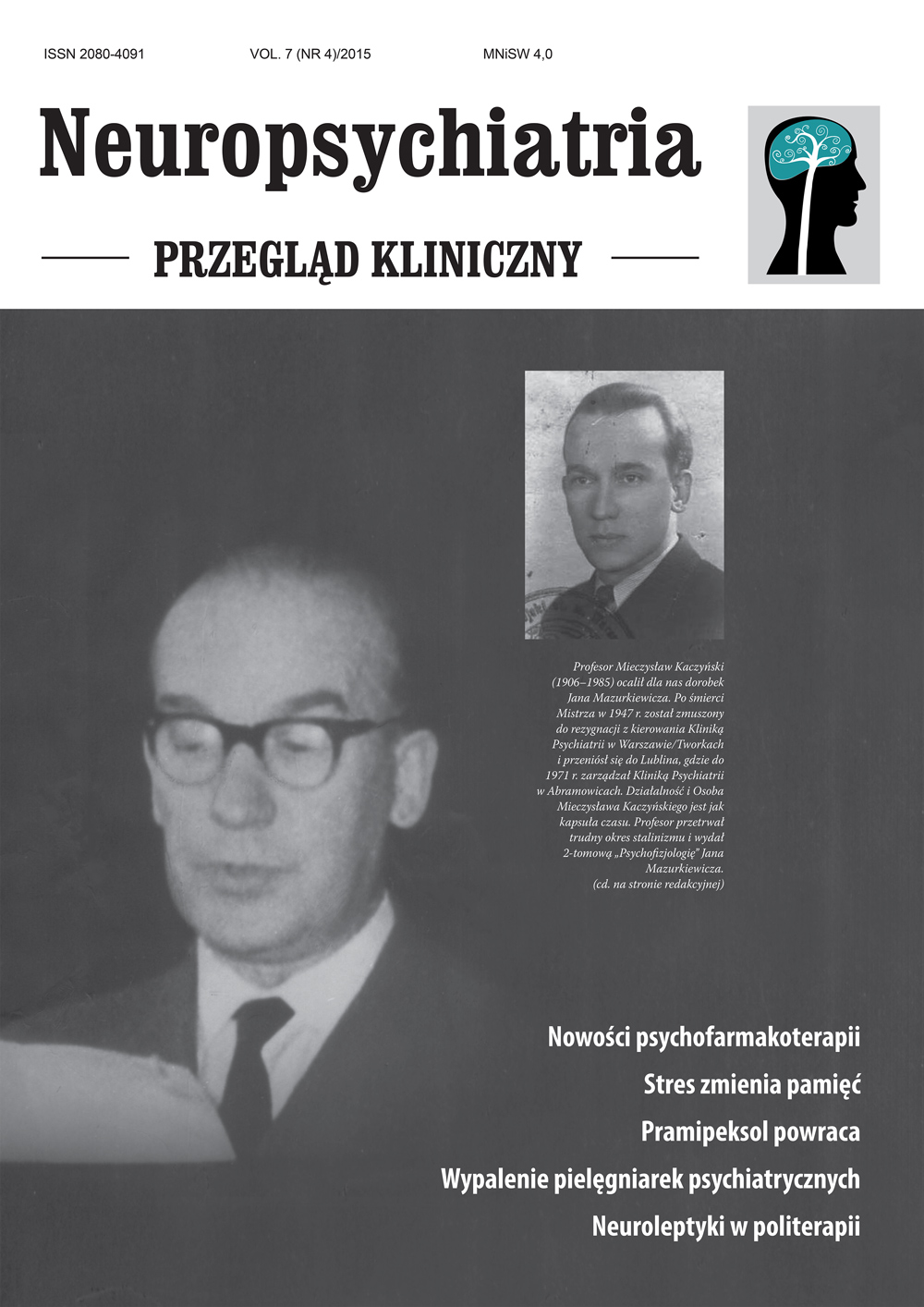New medicines in neuropsychotherapy Review article
Main Article Content
Abstract
Despite the fact that nowadays psychotropic drugs are playing a more central role in the treatment, not only in psychiatry, but generally in medicine, the pace of innovation in psychotropic drugs has slowed down over past years. There are some new drugs and candidates for new drugs, however regulatory authorities made everything to reduce costs of refunded medicines, and consequently hampered the introduction of new drugs on the market. This review outlines mostly real achievements in neuropsychiatry in recent years than prospects for future scientific advances. The article outlines new drugs and new technologies that make neuropsychiatric therapies more effective.
Article Details

This work is licensed under a Creative Commons Attribution-NonCommercial-NoDerivatives 4.0 International License.
Copyright: © Medical Education sp. z o.o. License allowing third parties to copy and redistribute the material in any medium or format and to remix, transform, and build upon the material, provided the original work is properly cited and states its license.
Address reprint requests to: Medical Education, Marcin Kuźma (marcin.kuzma@mededu.pl)
References
2. O’Brien PL, Thomas CP, Hodgkin D et al. The Diminished Pipeline for Medications to Treat Mental Health and Substance Use Disorders. Psychiatric Services 2014; 65(12): 1433-1438.
3. Łoza B. Znaczenie ciągłości leczenia środkami psychotropowymi w systemie zdrowia. Neuropsychiatria 2015; 7(2): 72-75.
4. Łoza B, Murawiec S. Neuroleptyki w postaci długodziałających iniekcji w leczeniu schizofrenii: nowe standardy terapii. Psychiatria 2015; 12(3): 119-127.
5. Tuszynski MH, Yang JH, Barba D et al. Nerve Growth Factor Gene Therapy Activation of Neuronal Responses in Alzheimer Disease. JAMA Neurol 2015; 72(10): 1139-1147.
6. Krishnan R, Tsubery H, Proschitsky MY et al. A bacteriophage capsid protein provides a general amyloid interaction motif (GAIM) that binds and remodels misfolded protein assemblies. J Mol Biol 2014; 426(13): 2500-2519.
7. Turner RS, Thomas RG, Craft S et al. Alzheimer’s Disease Cooperative Study. A randomized, double-blind, placebo-controlled trial of resveratrol for Alzheimer disease. Neurology 2015; 85(16): 1383-1391.
8. Degoulet M, Stelly CE, Ahn KC, Morikawa H. L-type Ca2 channel blockade with antihypertensive medication disrupts VTA synaptic plasticity and drug-associated contextual memory. Molecular Psychiatry 2015. https://doi.org/10.1038/MP.2015.84.

